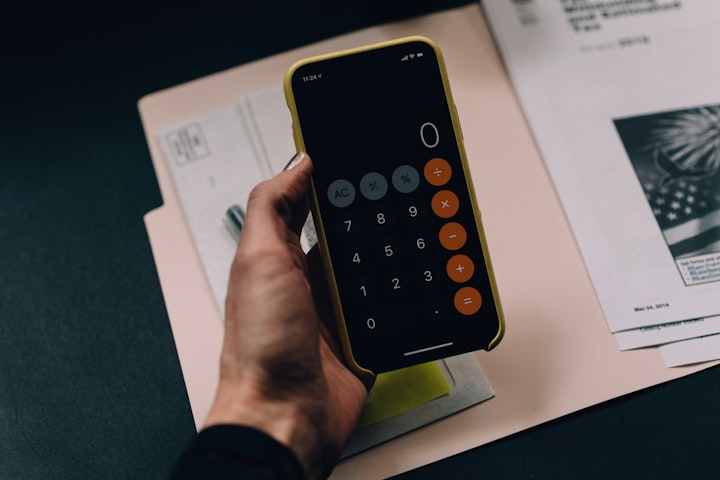How To Budget For Beginners: A Guide For Those Who Need a Little Help
Budgeting hacks

Budgeting can be a difficult task, especially if you’re a beginner. It can be hard to know where to start and how to balance your expenses. That’s where this guide comes in. In it, we’ll provide you with tips on how to budget for beginners. We’ll help you understand the basics of budgeting and show you how to create a budget that works for you. So whether you’re a beginner or a more experienced budgeter, we hope that this guide will help you get started.
Understand What A Budget Is
Figuring out the budgeting process can be a little confusing to the beginner. A budget is a plan that you make to control your spending. You put a budget together to help you stay within a certain amount of money. All of your income is directed to one account, your budget. It’s important to note that a budget doesn’t mean you cut yourself off from all of your favorite things. A budget is simply a way to keep track of your expense so that you can get a better idea of your financial situation. Budgets are often used to track a family’s expenses. A family’s budget might look something like this. The parent (or the head of the household) writes the check to cover the food for the week, the gas for the car, the utilities, etc. The rest of the family gets to spend their portion of the money on what they want, but they always account for it. This can be helpful to beginners because it shows you that a budget can be used in many different ways. You can also create a budget to keep track of your own expenses. You can use a budget to keep track of how much money you have coming in and going out each month. You can make adjustments as your expenses change. This can help you to better understand your cash flow.
Create A Budget That Reflects Your Needs
One thing that can make budgeting difficult for beginners is trying to control every single expense that goes into your budget. You may feel like you need to put a budget together that reflects the needs of others, like a parent or spouse. While it’s important to keep the budget balanced, it’s also important to create a budget that reflects your own needs. For example, if you’re in college and making a lot of friends with pizza and beer being a main staple of your diet, you may want to put a budget together that cuts those types of expenses out. If you live with your parents and they aren’t too keen on you spending so much money on groceries and other essentials, you may want to cut those expenses out of your budget as well. It’s important to remember that your budget should reflect your needs. You don’t want to try to control every single expense that goes into your budget, but you also don’t want to cut yourself off from important things.
Set Reasonable Expenses
One thing that beginners often have trouble with is setting reasonable expenses. It can be easy to set low expenses and then find yourself in a bad financial situation because you didn’t account for other important expenses. Set reasonable expenses that help you to stay in budget. It’s important to stay in budget so that you don’t find yourself in a financial bind if something were to happen. A budget should be realistic, but it’s also important to look at what’s realistic for you. What expenses do you need to stay in budget? How much money do you need to set aside for emergencies? If you don’t have a set amount in mind, you may want to consider finding out what other people in your budget are spending on the same things. You may find out what other people in your budget are spending on groceries and utilities, which can be helpful to get a better idea of what’s realistic for you.
Stick To Your Budget
One of the most important things when it comes to budgeting for beginners is to stick to your budget. It may be tempting to spend the money you had set aside and then some. What happens if something comes up that you really need? You may want to take care of the unexpected expense. What if you need to fix your car or fix your roof and your budget doesn’t have that budgeted in it? If you find yourself in any of these situations, it’s important to remember to stick to your budget. Try to keep in mind what you had set aside for other expenses and make sure that you don’t go over your budget. It can be tempting to spend some money on things that you don’t need. It can be easy to get carried away if you find yourself wanting to buy things that aren’t in your budget.
Use Online Tools To Track Your Progress
One of the best ways to stay on top of your budget is to track your progress online. A budget is a plan that you make to control your spending. You can’t control what you don’t know. Start tracking your expenses as soon as possible. Start by creating a spreadsheet, or start tracking your expenses online. A budget that isn’t being tracked is of no use and will go into the trash if not used. The sooner that you begin tracking your expenses, the sooner that you’ll begin to see what you’re spending money on and how much money is coming in. You’ll be able to make adjustments as necessary, which is incredibly helpful for those who are new to budgeting.
Conclusion
Budgeting can be a difficult task, especially if you’re a beginner. It can be hard to know where to start and how to balance your expenses. That’s where this guide comes in. We’ll provide you with tips on how to budget for beginners. We’ll help you understand the basics of budgeting and show you how to create a budget that works for you. We also have a downloadable budget planner that you can use to track your expenses. Whether you’re a beginner or a more experienced budgeter, we hope that this guide will help you get started.
Let me know what you plan to do and what resonates with you the most. Like and share with your friends and family that will find this article useful.
Find more about me here.
Check out my YouTube here if you want to learn more about personal finance. Subscribe and follow to receive more content like this in the future.
Click here if you want to learn more about productivity, personal development, and leadership.
About the Creator
Keeley Tan
Chartered Accountant (Singapore). I write about personal finance, personal development, and about my financial journey.






Comments
There are no comments for this story
Be the first to respond and start the conversation.